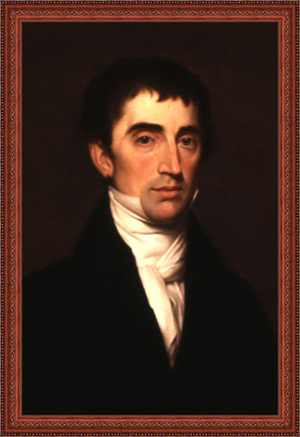1787-1845
Associate Justice of the New York Supreme Court of Judicature, 1822-1835
Jacob Livingston Sutherland was born in Stamford, Dutchess County, NY in 1787. A nephew of the former Chief Judge of New York, Smith Thompson, Sutherland commenced his studies at Yale in 1802, spent three years with the Class of 1806, and graduated in 1807. In his senior year he was one of the editors of the Literary Cabinet. Following graduation, he studied law in the Albany office of Harmanus Bleecker, and then set up practice in Poughkeepsie, NY.
On September 5, 1811, he married Frances, the daughter of Chancellor John Lansing, and in 1818 he moved to North Blenheim, in Schoharie County, to manage the large landed estates belonging to Chancellor Lansing and himself in that area.
Appointed District Attorney for the United States for the Northern District of New York in 1819, Jacob Sutherland was a delegate to the 1821 Constitutional Convention where he distinguished himself in debate. When the new constitution was adopted by the people in 1822, Mr. Sutherland was elected to the New York State Senate but he declined the office to accept a seat on the bench of the New York Supreme Court of Judicature. He served on the Court for fourteen years and during that time was the author of over 700 opinions. In Hart v. City of Albany, he wrote the main opinion of the Court of Errors affirming Chancellor Reuben Walworth’s opinion that citizens have the right to use a public waterway for navigation but have no right to exclusively occupy any part of it.
Justice Sutherland resigned from the bench in October 1835, to accept the office of Clerk of the New York Supreme Court of Judicature, at Geneva, NY, an office that provided a higher salary. In 1836, Sutherland was a Presidential Elector, and in the same year he received the honorary degree of LL.D. from Columbia College.
In failing health, Jacob Sutherland spent the winter of 1844-45 in the West Indies. On his journey home, he suffered his final illness and died at Albany on May 13, 1845. Tributes paid to him indicate that he was a learned lawyer, an able, impartial, independent judge and a man of “genius and elegant literary attainments.”
Source
Franklin Bowditch Dexter. Biographical Sketches of the Graduates of Yale College with Annals of the College History: September 1805-September 1815 (1912).

